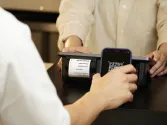
Weekly News Wrap: SEA to see 310 million digital consumers by end-2020; China's July auto sales up 16.4%
And here are the recent shifts in India’s spending habits.
From Bloomberg:
Southeast Asia will be home to 310 million digital consumers by the end of this year, reaching a number previously forecast for 2025, as physical distancing measures imposed during the coronavirus pandemic accelerate the shift toward online spending, according to the latest annual Facebook Inc. and Bain & Co. report.
That means almost 70% of the region’s population that are 15 years old and older will go digital by end-2020, and the average online spending per person will triple from 2019 to $429 in 2025, according to the report released on Thursday. The study surveyed some 16,500 digital consumers in six countries including Indonesia, the Philippines and Vietnam.
“Southeast Asian digital consumers have grown exponentially and their consumption habits are shaping today’s new norm,” Praneeth Yendamuri, partner at Bain, said in an interview.
The study found that Southeast Asia’s online spending now accounts for 5% of the total retail market, surpassing India’s 4% rate.
Read more here.
From Reuters:
China’s auto sales in July climbed 16.4% from a year earlier, the fourth consecutive month of gains as the world’s biggest vehicle market came off lows hit during the country’s coronavirus lockdown.
Sales rose to 2.11 million vehicles in July but are still down 12.7% for the year to date at 12.37 million vehicles, according to wholesale sales data from the China Association of Automobile Manufacturers (CAAM).
The association expects auto sales to fall around 10% this year barring a second wave of virus infections which could deepen the slide to around 20%.
In a promising sign for many global automakers which have invested heavily in electric vehicles for the China market, sales of new energy vehicles (NEVs) ended 12 straight months of decline with a 19.3% jump to 98,000 units.
“The sales growth shows NEV makers and customers are getting used to the new normal after the government cut subsidies last year,” said Xu Haidong, a senior CAAM official.
Read more here.
From Bloomberg:
Months of lockdown have altered the habits of Indian consumers: Their spending patterns reveal just how deeply concerned they are with protecting their health and fortifying their store-cupboards, warding off boredom and keeping their homes (and themselves) neat and tidy. And where new routines look likely to stick, some companies stand to gain a lot.
Amongst the products that shoppers in the world’s biggest open consumer market have been stocking up on are immunity boosters.
Companies such as Dabur India and The Himalaya Drug are witnessing high demand for traditional products like chyawanprash (a cooked mixture containing Indian gooseberry or amla, honey, sugar, ghee, herbs and spices) and proprietary supplements like Septilin, which combines ayurvedic ingredients including licorice and guduchi.
Read more here.



















 Advertise
Advertise






